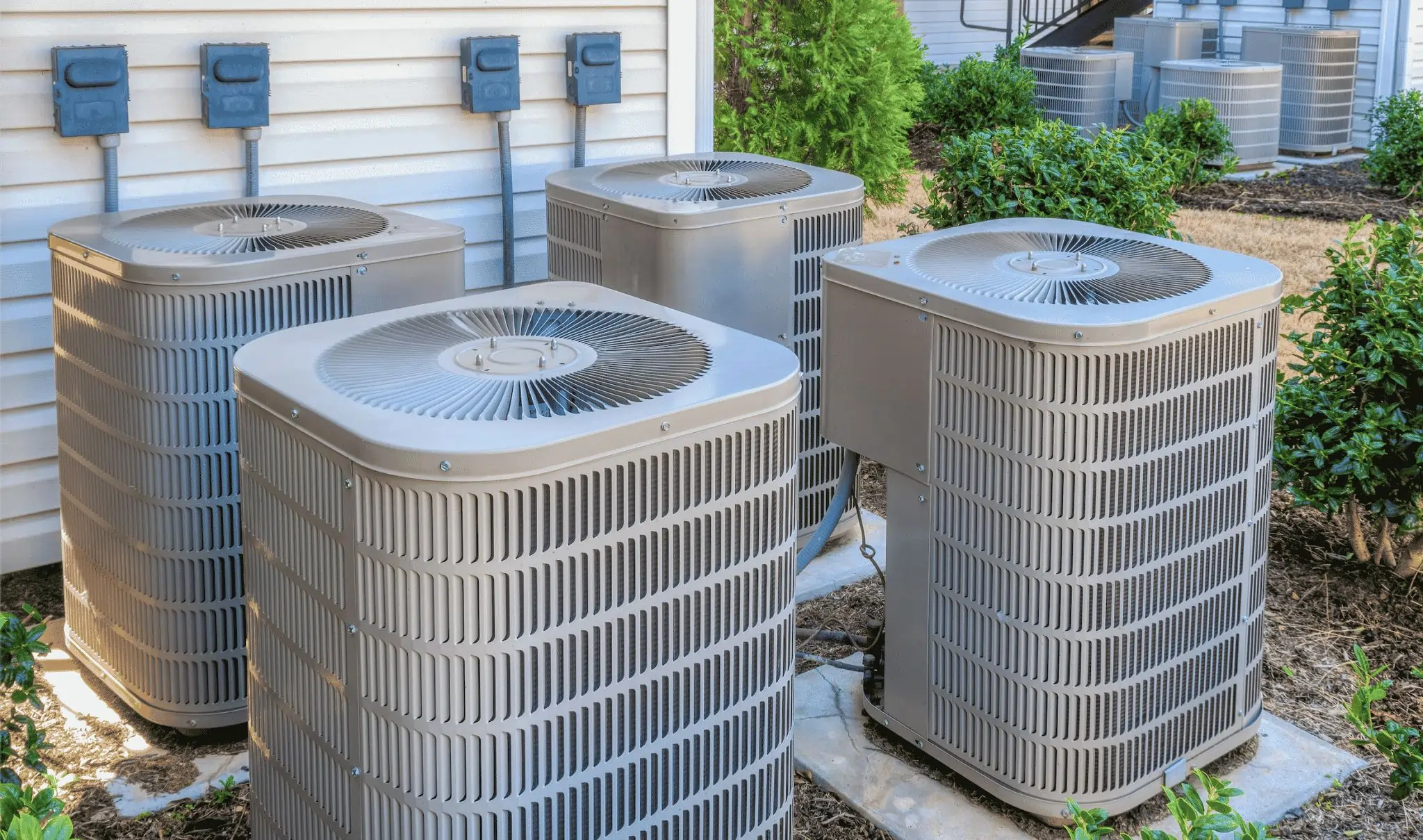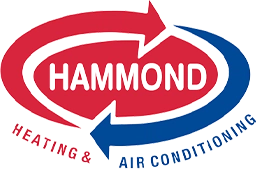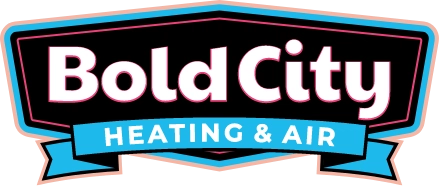Common Types of Air Conditioners
By knowing which type of air conditionerunit you have, you'll feel more empowered in your contractor search. Jacksonville HVAC technicians have experience with different AC makes and models, and they can tailor their skills to your needs.
- Split ACs: Split AC systems have two main elements: one inside and one outside. They provide peaceful operation, greater energy efficiency, ductwork options, and more cooling capability versus mini-splits.
- Ductless mini-split: Ductless mini-split air conditioners have an exterior unit and multiple interior units, with no ductwork required. They offer flexible installation options, individual room temperature control, and higher energy efficiency.
- Portable air conditioners: As the name hints, portable AC systems don't require permanent installation or ductwork. Instead, they remove hot air through an exhaust hose connected to a window or nearby vent. They're a common choice for apartments, condos, or individual rooms.
- Central AC: These are the most common home air conditioners, offering precise, consistent temperature control. They feature a central unit that cools and purifies outside air and sends it through ducts to various rooms in your home.
- Window ACs: Window air conditioners are a popular choice for Jacksonville townhomes, apartments, and condos. These budget-friendly, convenient units are designed for cooling small spaces and single rooms, and they fit snugly in a window frame or dedicated wall slot. Many window-mounted AC users set up their units without professional assistance, though technicians can still help with maintenance and repairs.
How to Choose Your Jacksonville AC Repair Service
With Jacksonville's extreme heat, AC problems are urgent to fix for your comfort and safety. However, don't rush to sign a contract until you know a company is the best fit for you. We recommend following these steps in your research.
Confirm the Company Is Properly Licensed and Insured
Florida's Department of Business and Professional Regulation certifies air conditioning contractors. New in-state applicants must verify their work experience, pass exams, purchase insurance, get fingerprinted, and prove financial stability and responsibility to earn a license. There is also a reciprocity path for contractors in other states to earn licensure in the Sunshine State.
Note that a Florida HVAC license doesn't allow contractors to work with gas lines or electrical systems. Both of these jobs require subcontracting.
Many states and cities also require companies to carry liability insurance. Even if your community doesn't require it, we still recommend choosing an insured company. This will protect you if an accident happens or something gets damaged.
Read Customer Reviews
Read customer reviews on the Better Business Bureau (BBB) website for each company you're interested in. The BBB accredits contractors that respond to complaints effectively and honor their warranties.
It's common for even the best AC repair businesses to have both positive and negative reviews. Read each one carefully, and avoid a provider if most reviewers had subpar experiences.
Compare Estimates
Obtain at least three detailed, written estimates from different providers for the best price. A good estimate should consider additional fees such as permitting costs. You should also ask about manufacturer warranties, installer guarantees, and the emergency repair process.
Ready to Get a Quote on Your Hvac Project?
Please enter a valid 5-digit zip code!
Frequently Asked Questions About AC Repair in Jacksonville
How much can I expect to pay for AC repair in Jacksonville?
See the average costs for common AC repairs below.
| Common Repair | Average Cost |
|---|---|
| Clogged air filter | $61–$163 |
| Electrical circuits | $200–$250 |
| Drainage problems | $100–$150 |
| Thermostat | $81–$204 |
| Refrigerant leak | $400–$1500 |
| Frozen condenser coils | $1,222–$3,667 |
| Fan or air blower issues | $150–$200 |
| Compressor replacement | $600–$1,548 |
How do I know if my air conditioning system needs repair?
- Clogged air filter
- Dirty evaporator coil
- Fan motor failure
- Faulty thermostat
- Faulty wiring
- Freon leak
- Frozen evaporator coil
- Improper refrigerant charge
- Malfunctioningcapacitor
- Malfunctioningcompressor
- Mold or mildew growth
- Oversized or undersized unit
- Refrigerant leak
- Water leaks
When is the best time to replace an AC unit?
Why is my AC running but not cooling?
How quickly can an HVAC company in Jacksonville respond to emergency repair requests?
To share feedback or ask a question about this article, send a note to our Reviews Team at reviewsteam@thisoldhousereviews.com.





